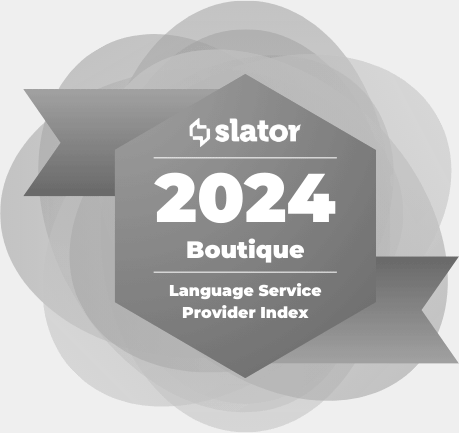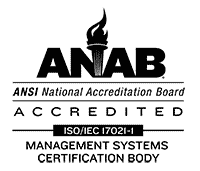Behind the CETRA Scene: Interview with an Italian Translator
Name: Carlo Zuccarini
Location: Northampton County, Pennsylvania

1.) What languages do you work with? What are some of the intricacies or challenges of the particular language you work with?
I am a translator, editor and localizer specializing in the language pair Italian into English and English into Italian. However, I also work with Spanish and French into English. In addition, I localize American English for the British English market, and sometimes vice versa. Working with several language pairs means that I receive a varied range of projects, each of which presents its own particular challenges and rewards. For example, when translating from English into Italian, it can sometimes prove difficult trying to fit the translated text into a set-length field originally designed for English. This is because more words are often required in Italian to express an equivalent English phrase. Another example relates to the increasing direct ‘transfer’ of English words in the Italian language. When translating an Italian text into English, it can sometimes be tempting to transcribe these words, without giving them further thought. (The same situation may also arise in certain cases when working in the other direction.) However, these English ‘loan words’ often have a different or specific attributed meaning in Italian than they would when used in English. This applies not only to specific technical terms, such as in medicine or engineering, but also to everyday language that can be found in news stories, for example. Keeping up to date with current language usage, including the specific terminology of my own specialist fields (science and technology, general medicine, psychiatry, neuroscience, psychoanalysis, psychology and music), is essential in order to produce natural, idiomatic versions that do not read like translations. A similar contemporary awareness – beyond language alone – is required when localizing American English to British English, given that the boundaries between the two are becoming increasingly less distinct, in many respects, as a result of globalization.
2.) What are some of your most interesting projects? Why?
Having worked for over twenty years as a freelance translator, I have completed a wide range of projects in a number of different fields, from background notes for opera audiovisual recordings, to documentation for clinical drug trials, and many other subjects in between! These days, the bulk of my translation work tends to revolve around translating clinical study documentation from Italian into English. This documentation includes patient informed consents and information sheets, letters to attending physicians, ethics committee decisions, and so forth. I enjoy working on these projects because each one relates to a different medical condition, drug or device. The information gained from one project – through the texts that need to be translated as well as the related terminology research – turns out to be useful for subsequent projects. There is a constant learning curve that allows new knowledge to be acquired by building on previous experience. However, the greatest reward in completing these projects is being able to contribute in some small way to improving patient health.
One of the most unusual projects that I worked on involved the translation into Italian of a text about dry dog food. One section of the text described in vivid detail the excretory benefits of the dog food – including the convenience afforded to the dog owner on account of the light weight and solid consistency of the resulting stool! (A this point it seems appropriate to mention that I am the proud owner of three cats, one female and two males: Katt, Stripee and Blackee.)
3.) What is the best part about being a translator? What do you love about it?
Being a translator brings many satisfactions, such as completing projects on time (deadlines are sacred!), taking pride in doing a good job, meeting client specifications, and always learning new information about different subjects in the process. One of the most rewarding aspects is knowing that you are facilitating communication between different languages and cultures. As a translator, you do your best to convey the author’s message as naturally and accurately as possible, while remaining unobtrusive. Being unobtrusive is what the translator aims to achieve, attempting to mediate communication in another language between the original author and the reader. Therefore, a translator’s highest achievement, beyond a good translation, is perhaps ‘invisibility’ – like a good actor who allows the character being portrayed to shine through, rather than himself or herself.
From a professional perspective, working as a freelance translator affords me greater flexibility – not the flexibility to take two-hour lunches every day, or month-long vacations! It means that I can specialize in certain subjects, selecting projects or being selected to work on projects that match my particular set of skills. This in turn benefits clients, as they have the assurance that they will receive high-quality translations. Ultimately, this is what every professional translator aims to achieve.
4.) How did you know you were “ready” to be a translator?
Although my first degree was in translation, I spent several years working in the financial publishing and direct marketing industries. My career move to freelance translation happened unexpectedly when I was contacted by The Gillette Company to translate their corporate sales manuals. Given the size of the undertaking, and the encouragement of a translator to whom I turned for help and advice, and who later became a freelance colleague, I decided to accept the challenge and become a full-time freelance translator. It was a baptism by fire! The project was so extensive that I engaged the services of a typist to whom I would send my penned manuscripts and who would magically return pristine typescripts for correction. This was in the “Dark Ages”, before the days of translation tools…. So I can thank The Gillette Company for allowing me to take the plunge and become a full-time translator – in fact, I have been their loyal customer ever since (“The best a man can get”)!
5.) What is the most difficult part about your job?
You mean other than trying to achieve consistently perfect translations? One of the most difficult things about being a freelance translator is time-management. It involves managing projects that often have overlapping deadlines (which, as I mentioned earlier, are sacred!); striking a balance between terminology research and the number of hours, days, weeks or even months that you have allotted to a particular project; and, lastly, achieving a work/family balance. You need to dedicate a lot of time to translation in order to ensure that you deliver consistently high-quality translations. This means that you sometimes have to make last-minute changes to plans in your social and family life.
6.) Can you translate a sentence for us? Your favorite quote? Your favorite word?
Working with languages every day, you tend to develop an intimate relationship with language in general. I have quite a few favorite and pet peeve words and phrases – too many to list. However, I think the Italian expression “Roma non fu costruita in un giorno” (“Rome wasn’t built in a day”) aptly reflects at once the history of the city in which I was born and the nature of translation itself, which is a constant work in progress towards an ultimate goal of perfection.






